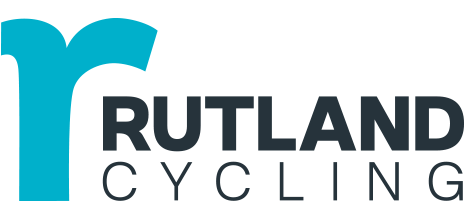Case Study

Pedalling towards a sustainable future
Leicestershire-based Rutland Cycling wanted to ensure it was leading by example when it came to sustainability best practices. That’s why it turned to the Leicester Innovation Accelerator (LIA) by East Midlands Chamber of Commerce for assistance.
Rutland Cycling started out in 1981 as a simple bike hire store on the shores of Rutland Water. Founded by Dave and Ann Archer, who instilled their passion for cycling across the business right from the start, the company is now one of the UK’s leading cycle retailers with 14 retail stores across the East Midlands, a turnover of £40 million per annum and a portfolio that extends to conventional and e-bike sales and hire, clothing, accessories, parts and related services.
While Rutland Cycling’s founders have always been keen to promote cycling’s role in a more sustainable future, they realised that not only was the issue becoming ever-more important, but that they could do more to reduce their own environmental impact.
“The more we thought about it, the more pressing it felt that we should be leading by example,” said David Hicks, Rutland Cycling’s marketing manager. “However, we were not sure where our sustainability priorities lay or, more importantly, what we could do to reduce our environmental impact. That’s why we turned to the Leicester Innovation Accelerator (LIA) by East Midlands Chamber of Commerce for help.”
The more we thought about it, the more pressing it felt that we should be leading by example.
David Hicks, Rutland Cycling
Hicks, along with other heads of department, met with Asha Mistry, a LIA social innovation officer, who spent time understanding Rutland Cycling’s areas of good practice and opportunities for improvement.
The outcome was a comprehensive Innovation for Good Sustainability Audit, which identified key areas where Rutland Cycling could take action including water use, active travel schemes, energy use, procurement and waste management including the disposal of e-bike batteries at end of life.
The whole process has been excellent – everything has been explained well at every step,” said Hicks. “With the LIA’s support, we’ve been able to objectively assess the current impact of our business on the environment, understand areas for change and improvement, and make long-term decisions on how we can adjust our processes in the future to operate more sustainably as a business. We now have a list of actions, some which we can implement quickly, and others that will take a little longer.”
Hicks believes the work of Mistry and her team will have a significant impact right across the business. Not only will staff well-being improve, but the team is now much better equipped to select suppliers based on their sustainability credentials. They also expect to reduce costs thanks to more efficient and sustainable processes.
“Ultimately, however, the biggest outcome is that we can hold our heads high knowing that we are doing all that we can to reduce our own impact on the environment – all while encouraging customers to ditch their cars in favour of their bike,” said Hicks.
“That’s invaluable.”
www.rutlandcycling.com